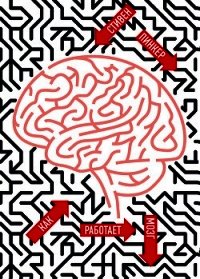Язык как инстинкт - Пинкер Стивен (книги серии онлайн .TXT) 📗
Petitto L. A. & Seidenberg M. S. 1979. On the evidence for linguistic abilities in signing apes // Brain and Language, 8. P. 162–183.
Piatelli-Palmarini M. (Ed.) 1980. Language and learning: The debate between Jean Piaget and Noam Chomsky. Cambridge, Mass.: Harvard University Press.
Piattelli-Palmarini M. 1989. Evolution, selection, and cognition: From «learning» to parameter setting in biology and the study of language // Cognition, 31. P. 1–44.
Pinker S. 1979. Formal models of language learning // Cognition, 7. P. 217–283.
Pinker S. 1984. Language learnability and language development. Cambridge, Mass.: Harvard University Press.
Pinker S. (Ed.) 1985. Visual cognition. Cambridge, Mass.: MIT Press.
Pinker S. 1987. The bootstrapping problem in language acquisiton // B. MacWhinney (Ed.), Mechanisms of language acquisition. Hillsdale, N. J.: Erlbaum.
Pinker S. 1989. Learnability and cognition: The acquisition of argument structure. Cambridge, Mass.: MIT Press.
Pinker S. 1990. Language acquisition // Osherson & Lasnik. 1990.
Pinker S. 1991. Rules of language // Science, 253. P. 530–535.
Pinker S. 1992. Review of Bickerton’s «Language and Species» // Language, 68. P. 375–382.
Pinker S. 1994. How could a child use verb syntax to learn verb semantics? // Lingua, 92.
Pinker S. 1995. Facts about human language relevant to its evolution // J.-P. Changeux & J. Chavaillon (Eds.), Origins of the human brain. New York: Oxford University Press. P. 262–285.
Pinker S. & Birdsong D. 1979. Speakers’ sensitivity to rules of frozen word order // Journal of Verbal Learning and Verbal Behavior, 18. P. 497–508.
Pinker S. & Bloom P. & commentators. 1990. Natural language and natural selection // Behavioral and Brain Sciences, 13. P. 707–784.
Pinker S. & Mehler J. (Eds.) 1988. Connections and symbols. Cambridge, Mass.: MIT Press.
Pinker S., and Prince A. 1988. On language and connectionism: Analysis of a Parallel Distributed Processing model of language acquisition // Cognition, 28. P. 73–193.
Pinker S., and Prince A. 1992. Regular and irregular morphology and the psychological status of rules of grammar // L. A. Sutton, C. Johnson & R. Shields (Eds.), Proceedings of the 17th Annual Meeting of the Berkeley Linguistics Society: General Session and Parasession on the Grammar of Event Structure. Berkeley, Calif.: Berkeley Linguistics Society.
Plomin R. 1990. The role of inheritance in behavior // Science, 248. P. 183–188.
Poeppel D. 1993. PET studies of language: A critical review. Unpublished manuscript. Department of Brain and Cognitive Sciences, MIT.
Poizner H., Klima E. S. & Bellugi U. 1990. What the hands reveal about the brain. Cambridge, Mass.: MIT Press.
Posner M. I. (Ed.) 1989. Foundations of cognitive science. Cambridge, Mass.: MIT Press.
Prasada S. & Pinker S. 1993. Generalizations of regular and irregular morphology // Language and Cognitive Processes, 8. P. 1–56.
Premack A. J. & Premack D. 1972. Teaching language to an ape // Scientific American, October.
Premack D. 1985. «Gavagai!» or the future history of the animal language controversy // Cognition, 19. P. 207–296.
Pullum G. K. 1991. The great Eskimo vocabulary hoax and other irreverent essays on the study of language. Chicago: University of Chicago Press.
Putnam H. 1971. The «innateness hypothesis» and explanatory models in linguistics // J. Searle (Ed.), The philosophy of language. New York: Oxford University Press. (Рус. пер.: Путнам Х. «Гипотеза врожденности» и объяснительные модели в лингвистике // Философия языка / Ред.-сост. Дж. Р. Сёрл. М.: УРСС, 2004.)
Pyles T. & Algeo J. 1982. The origins and development of the English language (3rd ed.). New York: Harcourt Brace Jovanovich.
Quine W. V. O. 1960. Word and object. Cambridge, Mass.: MIT Press.
Quine W. V. O. 1969. Natural kinds // Ontological relativity and other essays. New York: Columbia University Press.
Quine W. V. O. 1987. Quiddities: An intermittently philosophical dictionary. Cambridge, Mass.: Harvard University Press.
Quirk R., Greenbaum S., Leech G. & Svartvik J. 1985. A comprehensive grammar of the English language. New York: Longman.
Radford A. 1988. Transformational syntax: A first course (2nd ed.). New York: Cambridge University Press.
Rakic P. 1988. Specification of cerebral cortical areas // Science, 241. P. 170–176.
Raymond E. S. (Ed.) 1991. The new hacker’s, dictionary. Cambridge, Mass.: MIT Press.
Remez R. E., Rubin P. E., Pisoni D. B. & Carrell T. D. 1981. Speech perception without traditional speech cues // Science, 212. P. 947–950.
Renfrew C. 1987. Archaeology and language: The puzzle of Indo-European origins. New York: Cambridge University Press.
Riemsdijk H. van & Williams E. 1986. Introduction to the theory of grammar. Cambridge, Mass.: MIT Press.
Roberts L. 1992. Using genes to track down Indo-European migrations // Science, 257, P. 1346.
Robinson B. W. 1976. Limbic influences on human speech // Harnad, Steklis & Lancaster, 1976.
Rosch E. 1978. Principles of categorization // E. Rosch & B. Lloyd (Eds.), Cognition and categorization. Hillsdale, N. J.: Erlbaum.
Ross P. E. 1991. Hard words. Scientific American, April. P. 138–147.
Rozin P. & Schull J. 1988. The adaptive-evolutionary point of view in experimental psychology // R. C. Atkinson, R. J. Herrnstein, G. Lindzey & R. D. Luce (Eds.), Stevens’s handbook of experimental psychology. New York: Wiley.
Ruhlen M. 1987. A guide to the world’s languages, Vol. I. Stanford University Press.
Rumelhart D. E., McClelland J. L. & The PDP Research Group. 1986. Parallel distributed processing: Explorations in the microstructure of cognition, Vol. I: Foundations. Cambridge, Mass.: MIT Press.
Rymer R. 1993. Genie: An abused child’s flight from silence. New York: HarperCollins.
Safire W. 1991. Coming to terms. New York: Henry Holt.
Sagan C. & Druyan A. 1992. Shadows of forgotten ancestors. New York: Random House.
Samarin W. J. 1972. Tongues of men and angels: The religious language of Pentecostalism. New York: Macmillan.
Samuels M. L. 1972. Linguistic evolution. New York: Cambridge University Press.
Sapir E. 1921. Language. New York: Harcourt, Brace, and World. (Рус. пер.: Сепир Э. Язык. Введение в изучение речи // Сепир Э. Избранные труды по языкознанию и культурологии. М.: Прогресс «Универс», 1993.)
Saussure F. de. 1916/1959. Course in general linguistics. New York: McGraw-Hill. (Рус. пер.: Соссюр Ф. де. Курс общей лингвистики // Соссюр Ф. Труды по языкознанию. М.: Прогресс, 1977.)
Savage-Rumbaugh E. S. 1991. Language learning in the bonobo: How and why they learn // Krasnegor et al. 1991.
Schaller S. 1991. A man without words. New York: Summit Books.
Schanck R. C. & Riesbeck, C. K. 1981. Inside computer understanding: Five programs plus miniatures. Hillsdale, N. J.: Erlbaum.
Searle J. (Ed.) 1971. The philosophy of language. New York: Oxford University Press. (Рус. пер.: Философия языка / Ред.-сост. Дж. Р. Сёрл. М.: УРСС, 2004.)
Seidenberg M. S. 1986. Evidence from the great apes concerning the biological bases of language // W. Demopoulos & A. Marras (Eds.), Language learning and concept acquisition: Foundational issues. Norwood, N. J.: Ablex.
Seidenberg M. S. & Petitto L. A. 1979. Signing behavior in apes: A critical review. Cognition, 7. P. 177–215.




